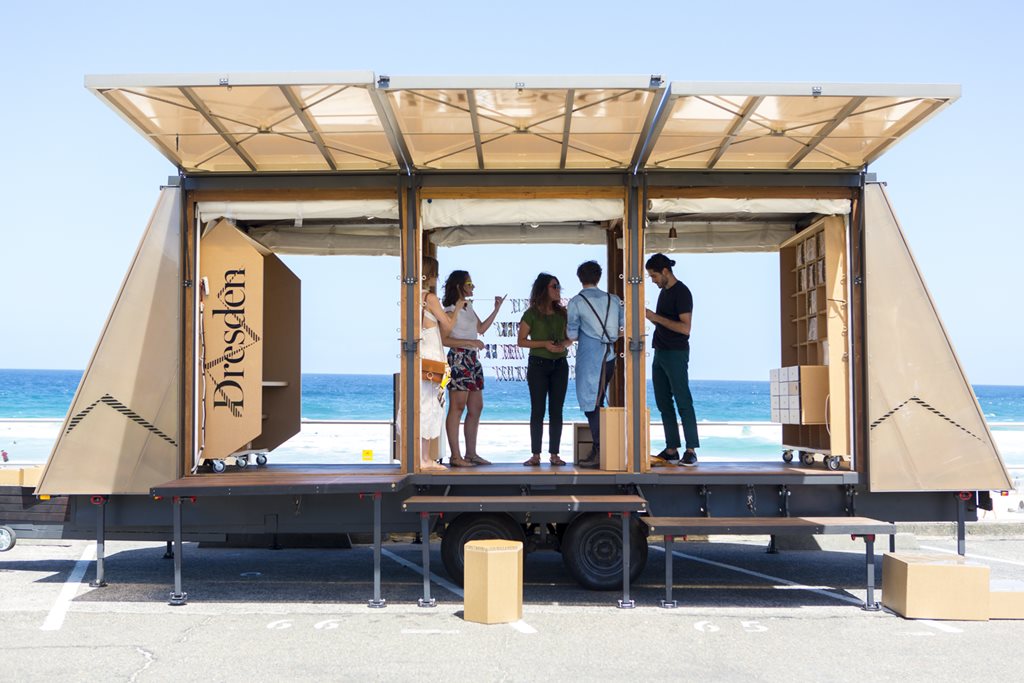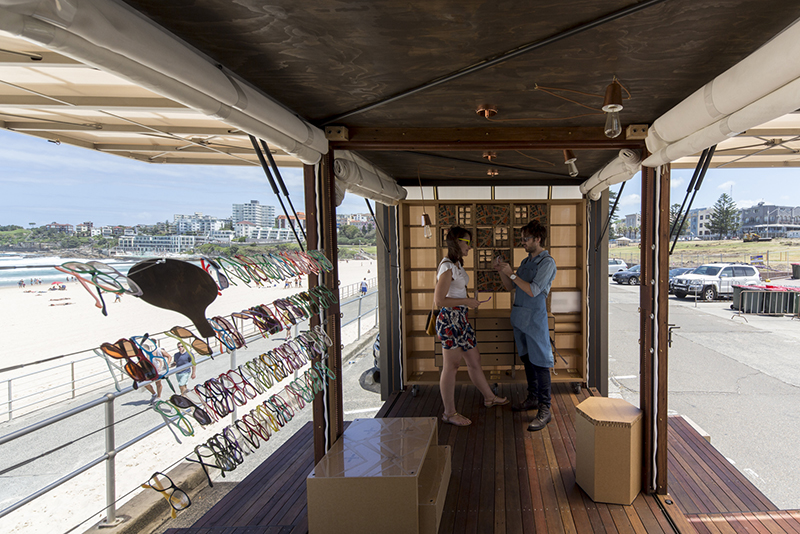Dresden Optics is a new eyewear company tipped to revolutionise the market with its interchangeable frame/lens range of products.
Moreover, the company is making headlines in green communities thanks to its devotion to closed loop recycling - all Dresden glasses frames can be recycled post consumption and born again as new eyewear for someone else.
Recently, the Dresden brand went mobile and when the team decided to take its retail store to the road they asked Sydney architect Alexander Symes to design it for them.
As the name suggests, Dresden Mobile is a mobile shopfront for Dresden Optics and part of a larger branding awareness campaign for the company. As mentioned, that brand is deeply embedded in the idea of closed loop recycling but it is also concerned with demystifying the complexity of glasses manufacturing by bringing the process out in the open and making their products more affordable, fun, versatile and dependable.
Symes was given the brief to visually communicate this story through the material palette in Dresden Mobile and turned to recycled materials (obviously) and a transparent, open planned fitout to do so.


One hundred per cent recycled timber was used internally, recycled content forms the skin of the modular retail shop and a versatile recyclable rigid paperboard called ‘Re-board’ was used for the fit-out.
Specifically, the project adopts the following:
- Tallowwood timber decking trims with floorboards from a 1940’s school gym
- Spotted Gum deck edge timber treated in the Shau Sugi Ban method to minimise maintenance without sealing or painting
- Re-board for the shop fitout
- Plywood sourced from mixed sourced of recycled packaging cover plates
- 100% recyclable Danpalon external cladding
- Recycled content steel components in chassis
- Recycled copper light fittings
But the shop also had to be practical and, in particular, equipped to accommodate the load of equipment, merchandise and customers.
The challenge here was that because the shop is technically a vehicle Symes was restricted to the weight parameters of the caravan code. This meant that he had to compromise on his dreams of making an all timber construct (frames and cladding) and instead had to substitute a timber frame for a recycled steel one. The use of Re-board also helped Symes stay under the weight threshold and because of its composition, can be recycled as paper in normal waste paper streams.
In retail mode, the walls of Dresden Mobile lift to become awnings for shade protection and decks fold out to increase the floor space of the store. By nature of its transportable composition, the store can also be orientated to manage solar gains or encourage prevailing breezes, while zip-down sailcloth on its sides can be used as shade or wind buffers without needing to halt retail operations.
With Dresden Mobile, Dresden Optics has a highly flexible commercial asset. The transportable shopfront allows the company to conclude which urban areas are most feasible to establish a permanent store and also reach people in places which establishing permanence wouldn't be feasible.
It is also a highly assertive branding awareness tool, allowing the company to position its products and ethos in new and untapped markets. Heavily involved in the effectiveness of that tool was Alexander Symes who was challenged to create a transportable shopfront that emulated the brand’s philosophy.
Symes and his team have demonstrated the ability of architecture to reify an intangible concept like brand ideaology and philosophy in materials and design.

